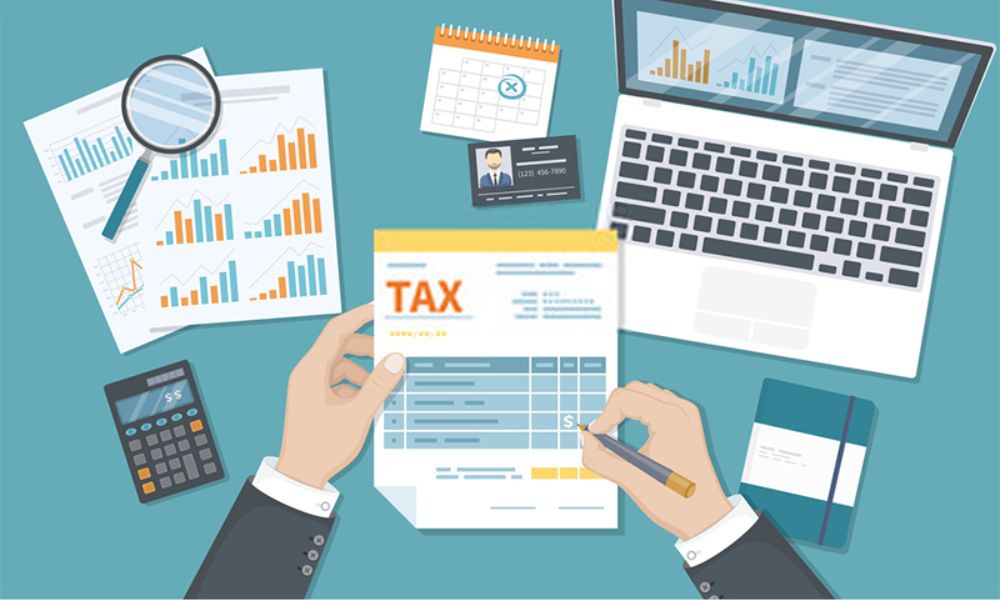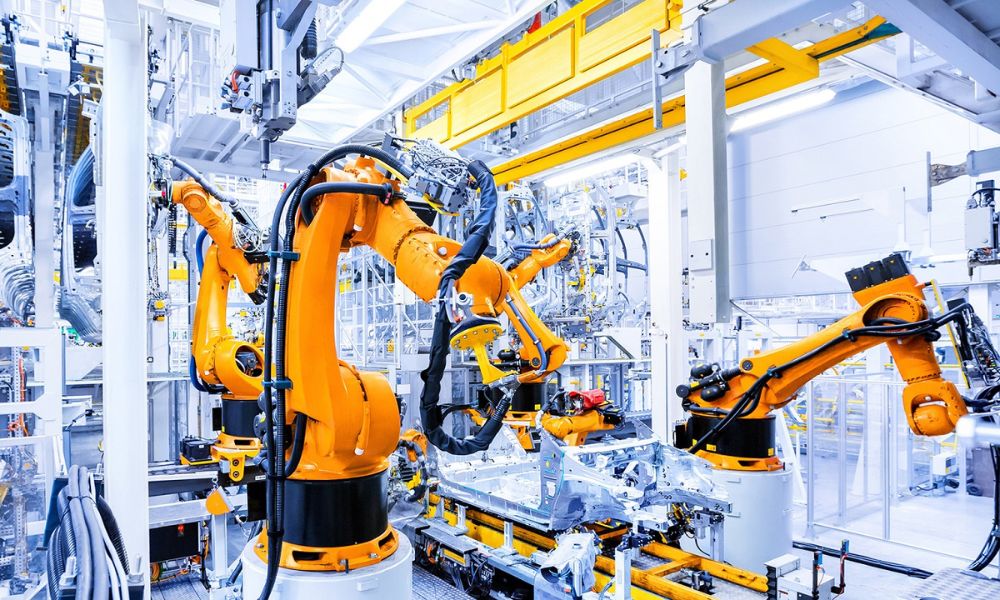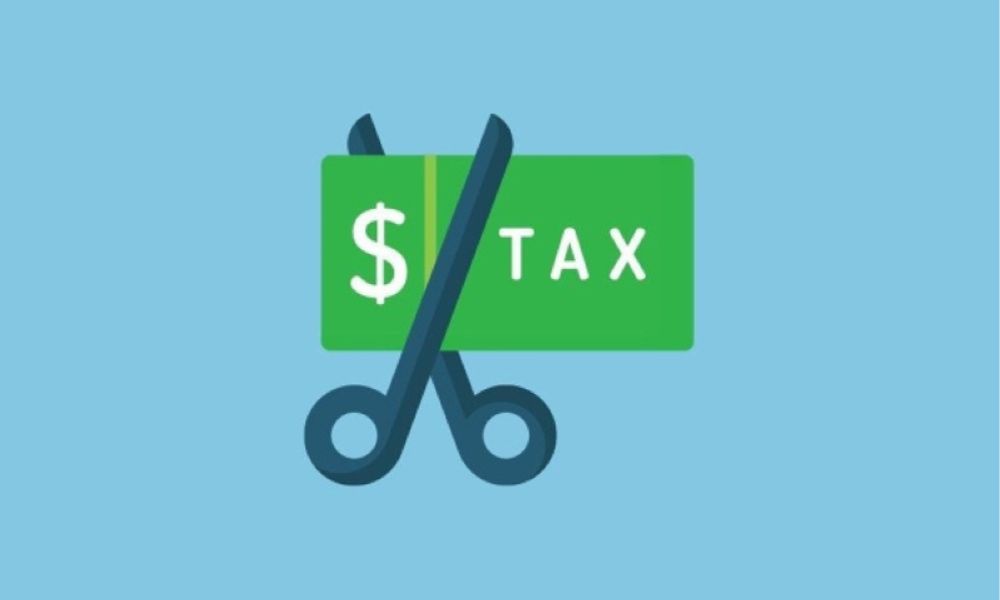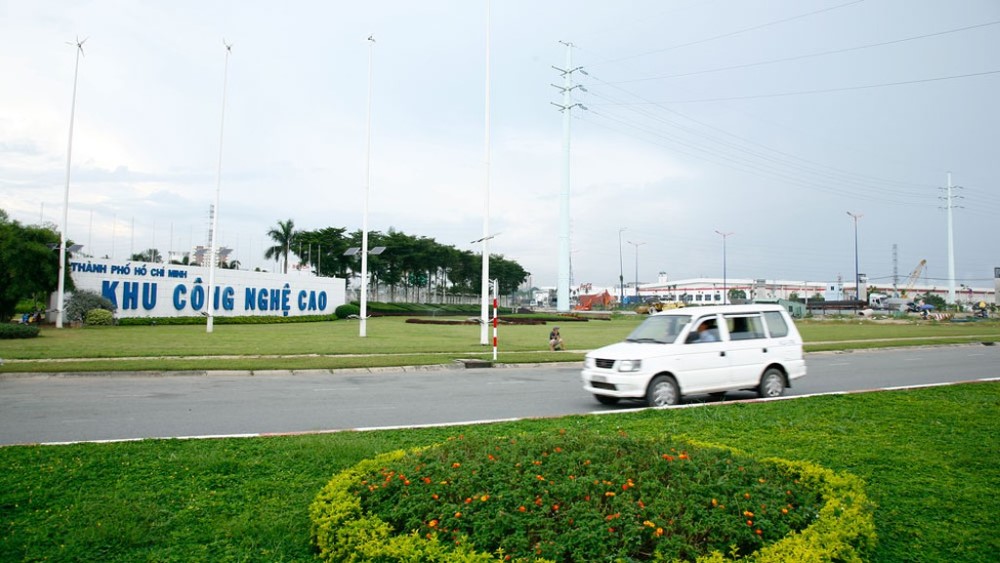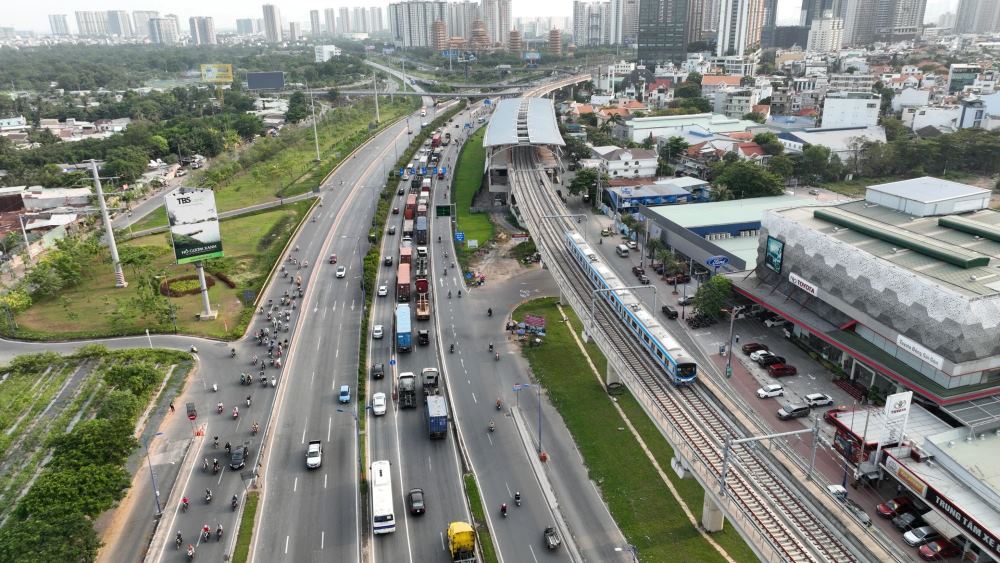Corporate income tax incentives – Driving force for exceptional economic growth
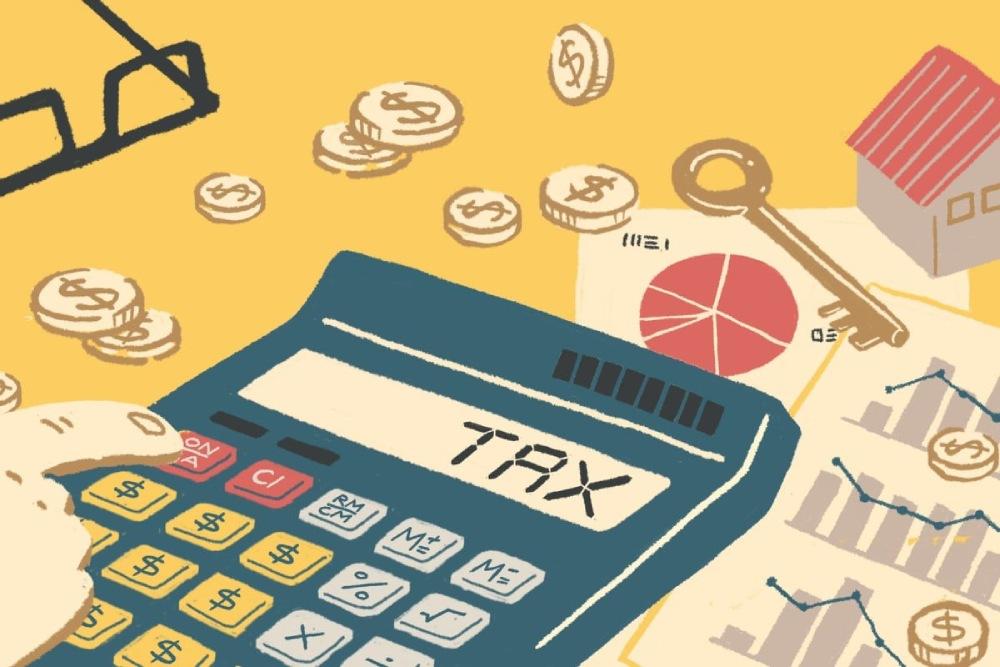
Corporate income tax is one of the effective tools for a nation to manage its economy. Utilizing taxes and corporate income tax incentives reasonably can lead to positive transformations and align the economy with the strategic path set by a country. Let’s explore comprehensive and general information about corporate income tax in this article.
What is corporate income tax?
Definition and roles of corporate income tax
Corporate income tax, also known as profit tax, is a direct tax on a business’ income. It encompasses revenue generated from a company’s production activities, the sales of goods and services, and other types of income as defined by the law.
Corporate income tax is a highly significant tax for the country to implement income regulation policies, and social equity, and serves as a vital revenue source in the national budget. Corporate income tax plays five major roles:
- First, it ensures a stable source of revenue for the state budget. This revenue is used for funding various government expenditures such as national development, public services, infrastructure construction, welfare, etc.
- Second, it is a crucial tool for the state to regulate and manage the economy. Through tax rates and incentives, the government can direct investors towards specific industries or regions, regulating and reshaping the structure of the national economy.
Corporate income tax incentives can become a tool for the state to manage and regulate the economy more effectively
- Third, corporate income tax guarantees social equity. Taxes in general and corporate income tax, in particular, are effective instruments for achieving social and economic balance in society and reducing wealth inequality.
- Fourth, corporate income tax serves as a measure to assess the effectiveness of a business’ tax compliance.
- Fifth, it enables the country to transform the structure of the national economy. Using corporate income tax incentives, such as exemptions or reductions for specific sectors or industries, the government can facilitate the long-term development of the country.
Learn more about corporate income tax here.
Who is required to pay corporate income tax?
According to the Corporate Income Tax Law in 2008, the entities obligated to pay corporate income tax include:
- Established businesses with valid business registration certificates under the law, such as limited liability companies with two or more members, partnerships, joint-stock companies, and others.
- Foreign businesses established and granted business certificates under the law, including foreign businesses with branches or offices in Vietnam.
- Public non-business units recognized by the law and engaged in business activities, in addition to their non-business functions.
- Organizations involved in business activities, such as cooperatives.
Why do corporate income tax incentives promote economic growth?
Corporate income tax incentives are a crucial tool for encouraging businesses to invest, produce, and operate, as well as for attracting investment, particularly foreign capital. As mentioned earlier, corporate income tax incentives can help guide the economy in the direction set by the government.
In a country like Vietnam, which still relies heavily on traditional sectors like agriculture and industry, the development of strategic and high-potential sectors such as technology, information, and services, and tourism can lead to more efficient economic development, enabling it to move away from dependency on traditional sectors and avoid falling behind more developed countries. Tax incentives will provide long-term benefits for the development of a growing economy like Vietnam’s. In today’s age of science and technology, seizing opportunities to shift the economic structure towards high-tech sectors is essential.
Vietnam needs to develop key technology industries on the foundation of a modern agricultural economy
Corporate income tax incentives will attract a significant amount of investment and new businesses operating in strategic industries, paving the way for a safe, stable, and effective economic transformation. In addition, attracting foreign investment and businesses can bring about non-economic benefits, including technology exchange, learning new operational models, or business cooperation between domestic and foreign companies.
Take a specific example of Saigon Hi-Tech Park (SHTP). This is a strategically significant high-tech park for both the Southern region and the entire country. Saigon Hi-Tech Park has attracted numerous technology companies, both domestic and foreign, such as FPT, Samsung, Nidec, Intel, etc. as a result of its favorable tax policies and ability to support businesses.
Not only large corporations but also small and medium-sized enterprises have the opportunity to establish their businesses in SHTP and benefit from corporate income tax incentives when setting up offices in projects like Integrated Business Park OneHub Saigon – located inside Saigon Hi-Tech Park.
Overview of the OneHub Saigon Integrated Business Park
Policies and eligible beneficiaries of current corporate income tax
Current corporate income tax policies encompass tax exemption and reduction periods and eligible beneficiaries as specified in the Corporate Income Tax Law and Decree No. 31/2021/NĐ-CP. These corporate income tax incentives are divided into two main models: tax rate incentives and tax exemptions during periods. Specifically, there are four vital forms of corporate income tax incentives:
A 10% tax rate for 15 years, with a 4-year tax exemption and a 50% reduction in the tax payable for the following 9 years (equivalent to 5%).
- This tax rate is applicable to various entities and businesses, with the most common beneficiaries being those generating income from new investment projects in economically challenged areas, special economic zones, and high-tech zones (e.g., Saigon Hi-Tech Park).
- Income derived from new investment projects, such as scientific research, projects for high-tech development, research and application of advanced technology, as well as high-tech enterprises, etc.
- Income generated from the manufacturing sectors, excluding projects producing goods subject to special consumption taxes, mineral extraction projects, and projects meeting the criteria for investment capital scale as stipulated.
- Enterprises with revenues in the manufacturing sector, having a scale of at least 12 trillion VND and employing technology certified under the Laws on High Technologies, Laws of Science and Technology.
- Enterprises with income from investments or the production of industrial products that support specific sectors, such as high technology, textiles, footwear, etc.
The government is focusing on and encouraging investment in high-tech industries by reducing many taxes for this industry group
Corporate income tax incentives offer businesses a consistent 10% tax rate throughout operations, with a 4-year exemption period and a subsequent 50% reduction in the tax payable for the following 9 years.
This corporate income tax incentive scheme applies to activities in the fields of education – training, healthcare, sports, and the environment, as well as appraisal services within economically challenged and particularly challenging regions.
Corporate income tax incentives with a 15% tax rate throughout operations
Businesses’ income that engages in farming, ranching, and production in agricultural and aquacultural activities within regions that do not have difficult or extremely difficult socio-economic conditions.
Corporate income tax incentives with a 17% tax rate for 10 Years, with a 2-year of tax exemption and a 50% reduction for the next 4 years
- These incentives are designed for businesses with income from new investment projects operating in areas with difficult socio-economic conditions as defined in the Appendix to Government Decree No. 118/2015/NĐ-CP.
- Corporate income from investment projects involved in high-end steel production, machinery manufacturing, and equipment production for agriculture, forestry, fishing, salt industry, etc.
The State has preferential corporate income tax policies for many industry groups and regions
Through these four tax incentive policies, it is evident that Vietnam is focusing on the development of high-technology industries with the hope that these sectors will become the new driving force in Vietnam’s economy in the future. Simultaneously, the State is maintaining its commitment to promoting and developing traditional agricultural sectors, acknowledging the importance of a diverse economic landscape.
With world-class agricultural products such as rice, coffee, cocoa, etc., preserving and strengthening a robust agricultural sector is deemed essential. The national economic restructuring is a long-term journey, therefore, reinforcing existing industries while encouraging investment in new sectors represents a prudent and forward-looking approach.
Corporate income tax calculation
The basic formula for calculating corporate income tax is as follows:
Taxable income – Research and Development fund provision (if applicable) x Tax rate = Corporate income tax payable.
- Taxable income is calculated using the following general formula:
Taxable income = Income – Exempt income + Carried-forward losses.
The formula for calculating corporate income tax
- Research and Development fund provision: The annual self-determined allocation made by businesses, capped at a maximum of 10% of the taxable income (as per Article 1, Clause 18 of Decree 218/2013/ND-CP).
- Tax rate: The basic corporate income tax rate is 20%. The exceptions of tax rate apply for certain businesses eligible for corporate income tax incentives or specific sectors with their own tax rates, including mining, petroleum, valuable resources, etc.
- Carried-forward losses: These are negative differences in income, not including losses from the previous year.
- Exempt income: This includes types of income that businesses are exempted from or entitled to tax reductions based on regulations.
- Income: Comprises various income sources derived from business operations, production, and other defined forms of income. These sources may include:
- Income from the transfer of capital and real estate.
- Income from the right to own and use assets, leasing, or asset liquidation.
- Other income types as stipulated in Circular 78/2014/TT-BTC.
Taxable income = Total revenue – Deductible expenses + Other taxable income
- Total revenue: This encompasses the total revenue a business acquired from selling goods, processing, providing services, and subsidies.
- Deductible expenses: These are actual expenses incurred during business activities and production to serve national defense and security as specified by the State.
Above is the most general formula for businesses to calculate corporate income tax. It’s important to note that the corporate income tax a business pays can vary depending on different factors, including industry category, regions, the company’s product offerings, etc.
See more: Why should you choose to rent an office in Ho Chi Minh City Hi-Tech Park
Consequences of the widespread distribution of corporate income tax incentives
The widespread distribution of income tax incentives across various industries and regions has certain consequences. The first consequence is that companies benefiting from tax incentives tend to concentrate in key economic areas. Although there are incentives for economically disadvantaged regions, still very few companies operate in these areas.
If so, they are often businesses producing region-specific goods, such as agricultural, forestry, or aquatic products. Companies in economically disadvantaged areas also face more challenges in accessing and benefiting from tax incentives. Why is it harder for those businesses to benefit from the tax incentives?
This is primarily due to the complex process of assessing whether a company meets the criteria for tax incentives which can take years to accomplish. This problem is partly due to the lack of clear and standardized processes to serve as a general model for different businesses.
Reduced tax money can be used to upgrade transport infrastructure, health services, education…
The second and most evident consequence is a significant reduction in the National budget revenue. According to statistics in 2020, only 3% of businesses were exempt from corporate income tax, but the tax reduction accounted for 27% of the total income tax revenue collected by the State. It is clear that although only a few companies take advantage of tax reduction incentives, there is still a substantial impact on the National budget revenue.
This budget could have been used to develop other public services, such as education, healthcare, environment, etc. Tax incentives for businesses are a double-edged sword that can affect national budget allocations. However, for the purpose of promoting a more vibrant economy with emerging key sectors, this trade-off is considered necessary.
Conclusion
Tax incentives for businesses are a potent tool for the country to promote, regulate, and transform the current Vietnamese economy. As a developing nation, Vietnam requires policies that not only bolster scientific and technological investments but also strengthen its agricultural sector.
Tax incentives for businesses bring substantial benefits to the country’s economic development. However, they also entail certain consequences that need to be addressed, including the complex application process for businesses seeking incentives or the substantial reduction in government revenue.

